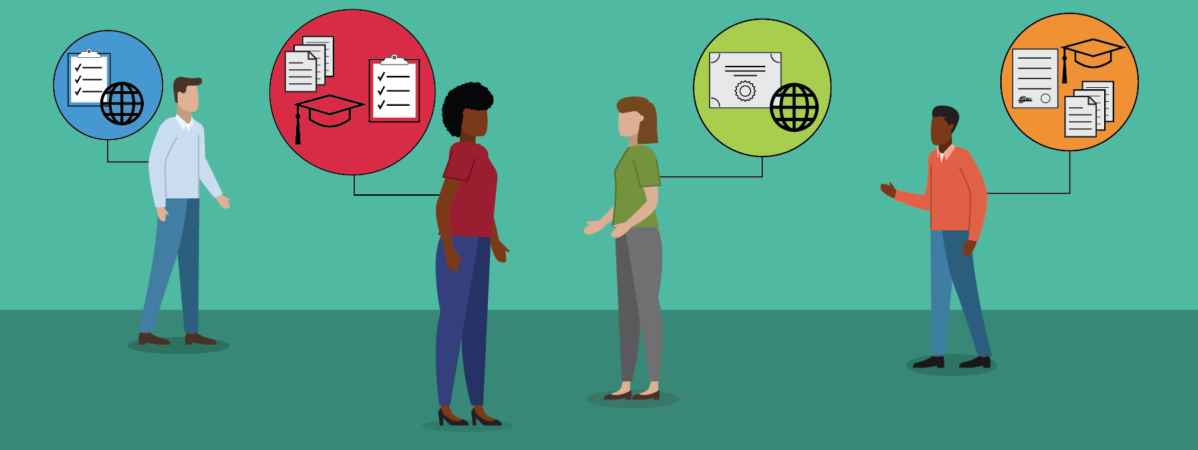
On top of this, it can be difficult to translate skills gained from professional experiences into a resume that offers potential employers a holistic view into everything an individual offers. Frontline job seekers report omitting certain roles—like gig work and the valuable competencies that are developed there, like budget management and customer service—from job applications. Ultimately, this is an unsurprising response to the little recognition society gives workers with such profiles. Historically and systematically excluded populations are especially harmed by this bias. Without access to career advisors at educational institutions or reliable digital connectivity, for example, job seekers can face significant hurdles in their employment journey.
Within the past few years, Learning and Employment Record (LER) technologies, —also known as comprehensive learner records (CLRs), have emerged as an innovation that may help alleviate roadblocks for frontline workers seeking employment. Through LERs, job seekers can list and verify myriad work experiences, credentials, degrees, and skills. However, if these technologies are not designed with marginalized populations in mind, they run the risk of reinforcing systemic biases and inequities.
To center users’ lived experiences in the design of these technologies, Digital Promise has partnered with frontline workers to create a new way to recognize LER technologies that prioritize user needs, the LER Inclusive Design: Product Certification. This certification will make it easier for job seekers and LER users to identify technologies that were designed to prioritize their safety, privacy, and access. By earning this certification, LER vendors send a clear signal to the market that their product acknowledges potential biases and makes meaningful attempts to reduce and remove features that could result in discrimination against potential end users.
Based on findings from our Inclusive Design Principles for Learning and Employment Records report (2022), this new certification assesses products on the evidence they submit to fulfill the following criteria:
Read about this work in our latest press release.
LER technology companies interested in earning this certification can apply here, and product developers can learn more about our other certifications here.
Digital Promise is proud to recognize the following technologies, which are the first to earn this new certification:
To discover digital tools that have earned other Digital Promise certifications, explore our list of Research-Based Certified Products and Learner Variability Certified Products.